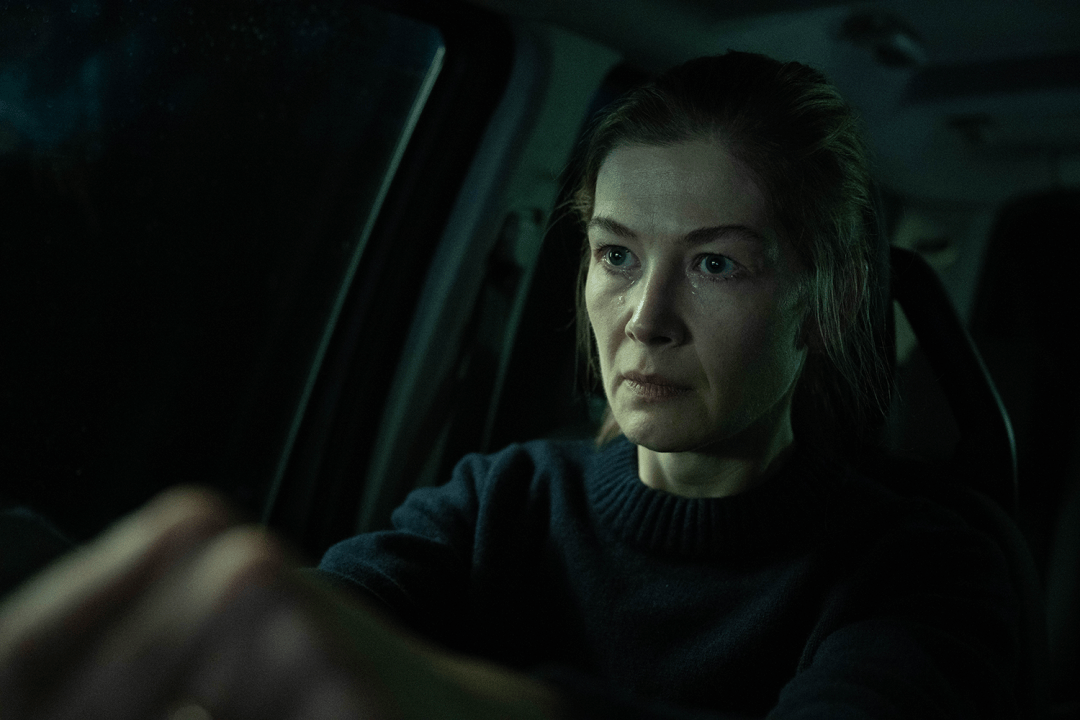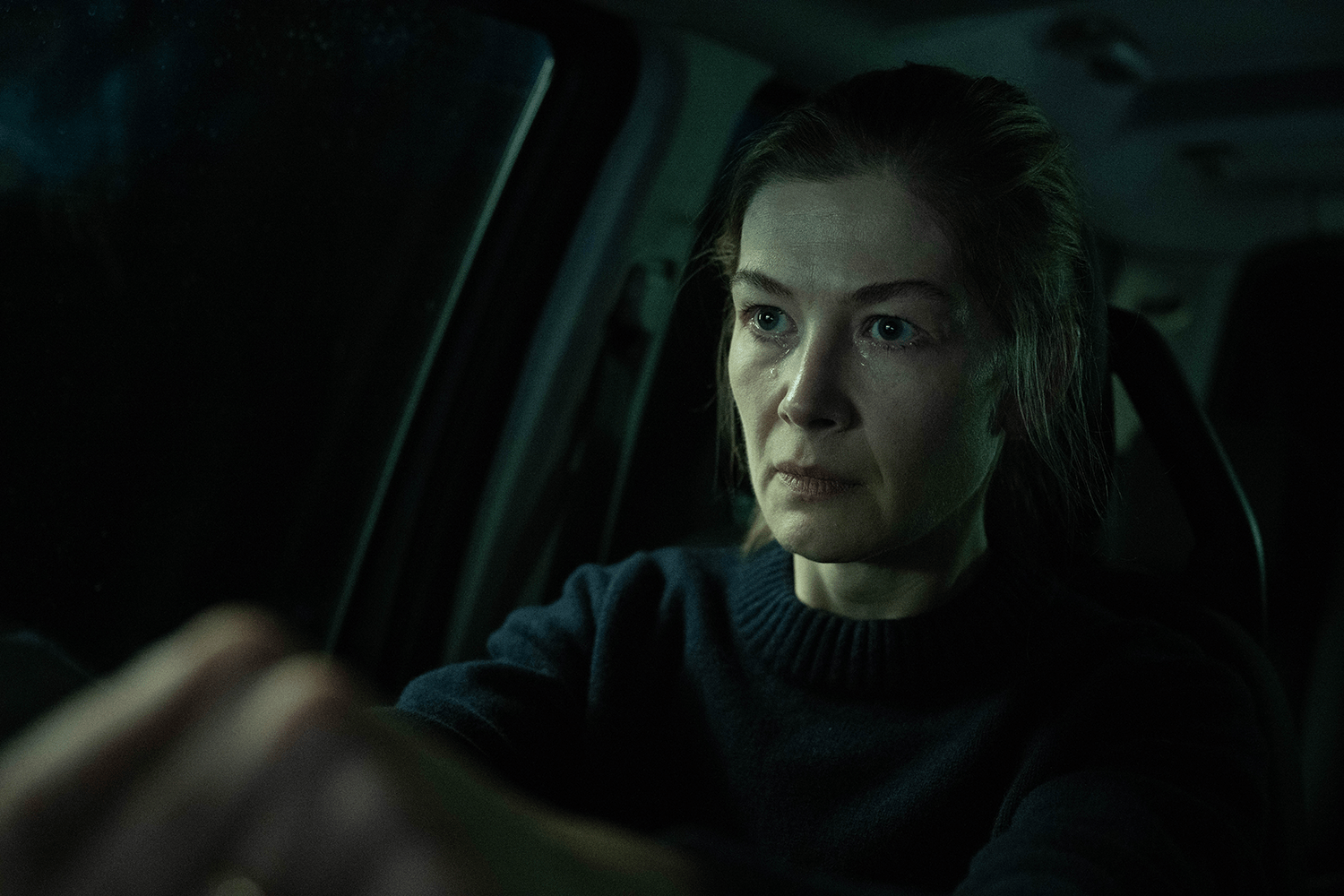
An 80-minute film which for almost all of the time features two people in a car mightn’t sound particularly ambitious. In fact, though, Hallow Road is bursting with so many ideas and genres that by the end they risk blowing it apart completely.
At first, it looks as if we’re in for a mix of family drama, psychological thriller and anxiety dream – which indeed we are, but only for starters. After some characteristically disorientating (it turns out) shots of an apparent crime scene – an abandoned meal, glass strewn across the floor – Maddy Finch (Rosamund Pike) receives a 2 a.m. phone call from her distraught daughter Alice (the voice of Megan McDonnell). Following a row over dinner, Alice has driven off in her dad’s car. Now, she’s stuck in a ditch in a forest about 40 miles away, having knocked down a girl who ran out in front of her on Hallow Road.
With that, Maddy and Frank (Matthew Rhys) jump into the family’s second car where they and the film will spend the next hour – at this stage still confident that they’ll be able to protect their daughter the way good middle-class parents do.
As a paramedic, Maddy gives Alice phone instructions on how to perform CPR until the ambulance gets there: instructions which continue long after it’s clear that they haven’t worked – and that Alice is lying about having called an ambulance.
Not that Maddy is the only parent in denial. Despite fancying himself as the stern realist, Frank tells Alice not to worry; once he and Maddy get there, the two women can drive home and he’ll stay in the forest to take the rap for the crash. After all, unlike Alice, he’s sober. In the meantime, why not change the subject and talk about how well she’s doing at university?
By now, the feeling of dread is cranking up nicely, with an increasingly panicky Alice still just a disembodied voice on the phone (where an ironically cheerful picture of her face can be seen) and her increasingly panicky mum and dad beginning to realise that not everything can be fixed by parental concern alone.
It then cranks up further when they hear their daughter being approached by a passing woman. Initially, the woman sounds as if she’s a kindly Samaritan. Gradually, however, her motives come to seem a lot more mysterious – and sinister – than that, as she rather portentously emphasises that consequences can never be avoided.
Her spooky presence also helps to explain why the date is 31 October, the location of the accident is Hallow Road and the forest is so determinedly primal – because now the psychological realism gives way to both a fairy tale and a possible ghost story. Which is where the excess of genres takes its toll.
I won’t spoil what happens when Maddy and Frank arrive at the crash scene – not only out of the traditional concern for Spectator readers, but also on the solid grounds that I have no idea what does. Presumably, the aim of the baffling ending is tantalising ambiguity (either that, or to get people frenziedly debating the movie’s meaning on social media). But the effect is more like a film that, unable to marshal its many intriguing elements into coherence, has simply left them to dangle.
In one of her portentous moments, the mystery woman tells Maddy and Frank that people can proceed either ‘logically or emotionally’. Hallow Road itself, I’d suggest, plumps firmly for the second option. Emotionally, it packs an undeniable punch – but I can’t help wishing that it had made logical sense too.








Comments